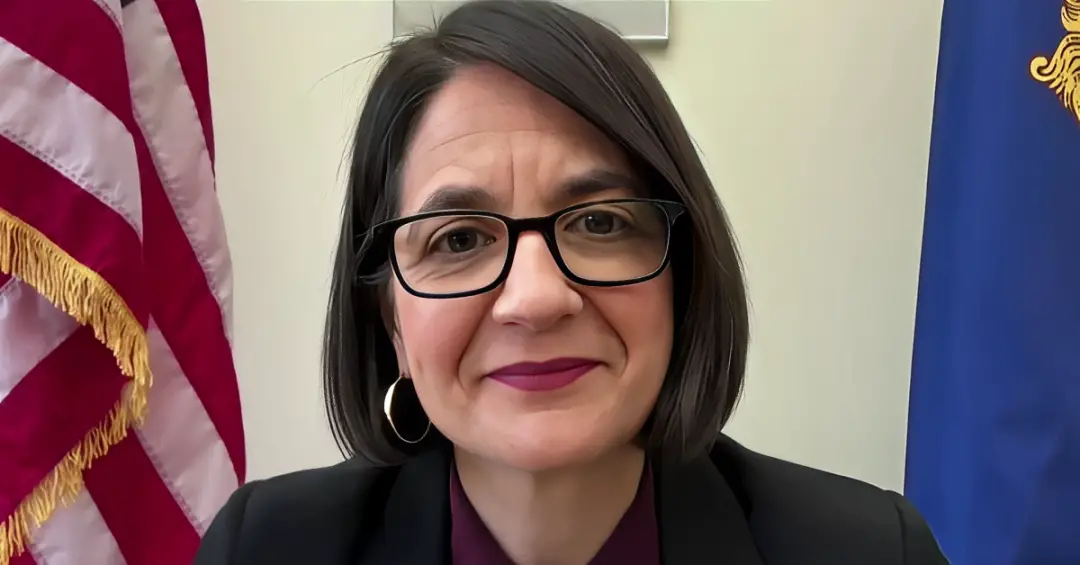A new Republican plan to cut government spending is facing heavy criticism, especially from Democrats like Representative Becca Balint of Vermont. She strongly condemned the proposal, calling it a “total betrayal of the middle class.” According to Balint, the GOP’s plan would seriously harm working families who depend on key federal benefits like Social Security, Medicare, Medicaid, and food assistance.
The proposal has sparked national debate over how the government should handle its finances, who should be protected, and who will ultimately pay the price.
What’s in the GOP Plan?
The Republican plan focuses on cutting spending to reduce the federal deficit. GOP leaders argue that government expenses are out of control, and cuts are necessary to avoid a financial crisis. However, the programs they’ve targeted—Social Security, Medicare, Medicaid, and SNAP (commonly known as food stamps)—are some of the most important support systems for millions of Americans.
These programs help people retire with dignity, afford medical care, and put food on the table. Many Democrats believe these benefits should be expanded, not reduced.
Balint, speaking out against the plan, said, “This is not fiscal responsibility. This is a direct attack on hardworking Americans who depend on these services every single day.”
Why Balint and Others Are Worried
Rep. Balint didn’t hold back in her response to the proposal. She warned that cutting these benefits would further put countless families into financial hardship.
“Families in Vermont and across the country are already dealing with rising costs—food, rent, medical bills. Now the GOP wants to make things worse by cutting the very programs that help them survive. It’s completely unacceptable,” she said.
Balint also criticized the Republican approach to solving economic problems. “Instead of asking billionaires to pay a fair share of taxes, they’re putting the weight of the debt on the backs of regular families. It’s just wrong,” she added.
The Programs at Risk
Let’s take a closer look at the programs in question:
- Social Security provides monthly payments to retired workers, disabled people, and survivors of deceased workers.
- Medicare offers health insurance to people 65 and older and certain younger people with disabilities.
- Medicaid helps low-income individuals and families get access to healthcare.
- SNAP (food stamps) provides food assistance to low-income households.
All of these programs are essential for millions of Americans, especially the elderly, people with disabilities, single parents, and working-class families.
Critics say cutting these programs would be devastating, not just for those who use them today, but also for future generations.
Republicans Say It’s About the Deficit
Republicans behind the plan argue that the federal government is spending too much money and that the national debt is becoming dangerous. They believe the only way to fix the problem is by reducing spending.
They also claim that programs like Social Security and Medicare need to be “reformed” before they run out of money. However, they haven’t clearly explained how they would do that without hurting the people who depend on them most.
So far, many Republican leaders have avoided giving detailed answers when asked about the exact cuts or how quickly they would happen.
What Critics Say
Democrats, including President Biden, strongly oppose cutting benefits. They believe the government should protect and strengthen programs that help ordinary Americans, not weaken them.
President Biden has made it clear that he won’t sign any legislation reducing Social Security or Medicare. He argues that the government should instead focus on taxing large corporations and the ultra-wealthy, who often avoid paying their fair share.
Balint agrees, saying, “This is about values. Do we protect the billionaires, or do we protect the backbone of this country—the middle class?”
Real-Life Impact
The proposed cuts are not just numbers on paper—they would have real-life consequences.
- A senior citizen who depends on Social Security may lose part of their monthly income.
- A working mom may lose food assistance that helps feed her kids.
- A young man with a disability may lose access to Medicaid, which covers his therapy and medication.
Many people are speaking out, sharing their fears online. One woman wrote, “I’ve worked 40 years paying into Social Security. Now they want to take it away when I need it most? That’s not fair.”
Another tweet said, “If you cut Medicaid, how are people with disabilities supposed to live?”
These stories show just how personal and serious this issue is.
What Happens Next?
Right now, this proposal is just that—a proposal. It still needs to go through Congress, where Democrats are likely to fight it fiercely. There’s a good chance it won’t pass in its current form.
But the debate has already started, and it’s raising important questions about priorities. Should the government cut programs that help people in need? Or should it find other ways to manage its money, like increasing taxes on the wealthy?
Rep. Balint closed her statement with a powerful reminder: “Middle-class families are not the problem—they’re the foundation of this country. They deserve support, not betrayal.”
Conclusion
This issue is far from over. While the Republican plan may not become law, it shows how divided the country’s leaders are regarding spending, benefits, and economic priorities.
For now, many Americans are watching closely and speaking out, hoping their voices will be heard before decisions affect their future.
Disclaimer: This article has been meticulously fact-checked by our team to ensure accuracy and uphold transparency. We strive to deliver trustworthy and dependable content to our readers.




